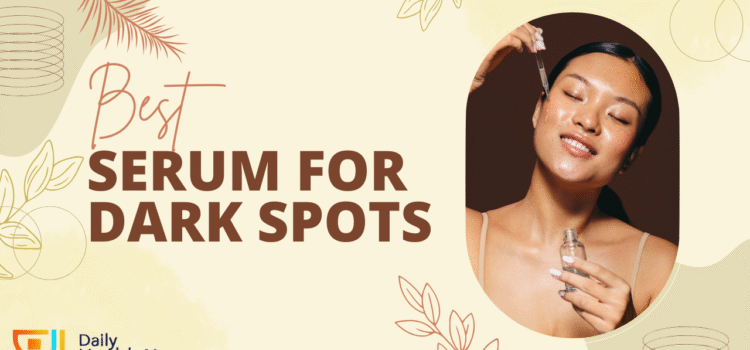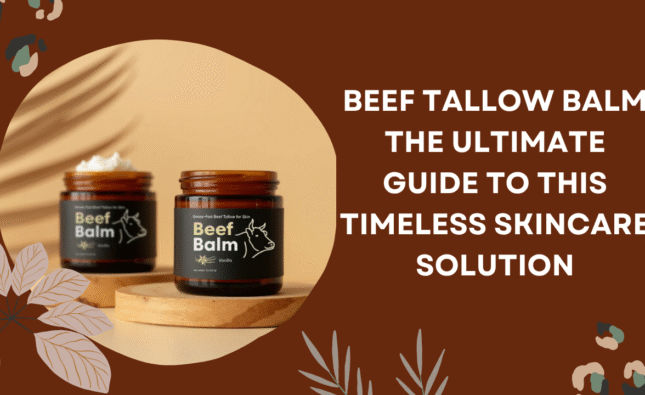
Home / Blog / Skin Care / Explore This Topic
The Best Serum for Dark Spots: Dermatologist-Recommended Picks for Glowing Skin
Dark spots—or hyperpigmentation—are one of the most common skincare concerns among adults in the United States. From post-acne marks to sun damage and melasma, these spots can be stubborn, affect confidence, and take months to fade. The good news? You don’t need harsh procedures to treat them. The right serum for dark spots can significantly lighten pigmentation and even your skin tone over time—especially when it’s backed by dermatologist-approved ingredients.
Let’s explore the most effective serums, what ingredients actually work, expert tips from US dermatologists, and how to choose the best vitamin C serum for dark spots based on your skin type.
Why Are Serums the Best Choice for Treating Dark Spots?
Unlike creams and lotions, serums are lightweight and packed with potent active ingredients designed to penetrate deeper into the skin. They’re highly concentrated, meaning just a few drops deliver powerful results. That makes serums ideal for targeting:
-
Age spots
-
Post-inflammatory hyperpigmentation (PIH)
-
Acne scars
-
Melasma
-
Sunspots and sun damage
In fact, many skincare experts in the US recommend a layered serum approach—using a Vitamin C serum in the morning and a retinol-based product at night—for optimal pigmentation control and fine line reduction.
Key Ingredients to Look for in the Best Serums for Dark Spots
When browsing for a high-performance dark spot serum, ensure it contains at least one of the following dermatologist-recommended ingredients:
✅ Vitamin C (L-Ascorbic Acid)
This is a gold-standard ingredient. It fights free radicals, lightens dark spots, and brightens dull skin. Look for 10-20% concentrations for maximum effect.
✅ Niacinamide
This multitasker not only calms inflammation but also fades hyperpigmentation and strengthens the skin barrier—ideal for sensitive skin.
✅ Alpha Arbutin
A safer alternative to hydroquinone, alpha arbutin reduces melanin overproduction with minimal irritation.
✅ Retinol
Retinol is a vitamin A derivative that accelerates skin renewal and boosts collagen, making it ideal for both pigmentation and aging concerns.
✅ Tranexamic Acid
Gaining popularity in US skincare, this ingredient is great for melasma and hormone-related pigmentation.
✅ Glycolic Acid
An alpha hydroxy acid (AHA) that exfoliates dead skin cells, allowing active ingredients to penetrate more effectively.
Best Serums for Dark Spots (2025 US Market Edition)
Based on clinical reviews, dermatologist ratings, and user feedback in the United States, here are some of the best serums for dark spots you can buy right now:
💧 SkinCeuticals C E Ferulic
-
Price: $$$
-
Contains: 15% L-Ascorbic Acid + Vitamin E + Ferulic Acid
-
Benefits: Brightens skin, reduces dark spots, and improves texture
-
Best For: Dry to normal skin types
🌿 The Ordinary Alpha Arbutin 2% + HA
-
Price: $
-
Contains: Alpha Arbutin + Hyaluronic Acid
-
Benefits: Hydrating and brightening, great for beginners
-
Best For: All skin types, including sensitive
🧴 Murad Rapid Dark Spot Correcting Serum
-
Price: $$
-
Contains: Tranexamic Acid + Glycolic Acid + Hexylresorcinol
-
Benefits: Clinically proven to reduce hyperpigmentation in 14 days
-
Best For: Stubborn, deep discoloration
🌟 Sunday Riley A+ High-Dose Retinoid Serum
-
Price: $$$
-
Contains: 6.5% Retinoid Blend + CoQ10
-
Benefits: Treats fine lines and dark spots simultaneously
-
Best For: Mature, acne-prone, or oily skin
🌸 Naturium Vitamin C Complex Serum
-
Price: $
-
Contains: 22% Vitamin C Complex (Sodium Ascorbyl Phosphate)
-
Benefits: Affordable, effective antioxidant protection
-
Best For: Dull, uneven skin tone
Tailoring Your Serum to Your Skin Type
-
Dry Skin: Look for serums with hyaluronic acid, niacinamide, and Vitamin E. Avoid strong exfoliants unless paired with moisturizers.
-
Oily/Acne-Prone Skin: Go for lightweight, non-comedogenic formulas with salicylic acid, niacinamide, or alpha arbutin.
-
Sensitive Skin: Stick with gentle ingredients like licorice root extract, alpha arbutin, and niacinamide. Patch test before using Vitamin C or retinoids.
-
Mature Skin: Choose products that address both pigmentation and aging—such as retinol or bakuchiol serums.
US-Specific Trends & Stats
-
A 2024 Statista report reveals that over 34% of women aged 25-45 in the US have used a serum for pigmentation in the past 6 months.
-
American dermatologists report a growing interest in “clean” serums—paraben-free, fragrance-free, and vegan formulas.
-
Major US brands like Paula’s Choice and CeraVe are launching new dark spot-focused serums to meet rising demand.
How to Maximize Results from Your Serum
-
Apply to freshly cleansed skin—serums work best on a clean base.
-
Layer properly—serum before moisturizer, sunscreen last.
-
Use daily—consistency is key to fading dark spots.
-
Sun protection is non-negotiable—always apply SPF 30+ to prevent further pigmentation.
-
Combine ingredients wisely—Vitamin C in the morning, retinol at night.
Common Mistakes to Avoid
-
Using too many actives at once—can cause irritation or worsen pigmentation.
-
Skipping sunscreen—UV exposure counteracts all progress.
-
Not giving products time—results may take 6–12 weeks.
What Dermatologists in the US Are Saying
“The best regimen includes a multi-ingredient approach—Vitamin C, alpha arbutin, and retinol all play a role. But what really makes a difference is patient compliance and daily SPF.”
– Dr. Andrea Suarez (Board-Certified Dermatologist, Houston, TX)
“Patients who stick with it typically see a 50–75% reduction in dark spots over 12 weeks.”
– Dr. Michelle Henry, Clinical Instructor of Dermatology, New York
Final Verdict: Which Serum is Right for You?
The best serum for dark spots is one that suits your skin type, addresses your specific pigmentation concern, and fits into your routine. If you’re new to treating dark spots, start with a gentle Vitamin C serum. If you’re dealing with stubborn spots and aging signs, add in a retinol-based product at night. Just don’t forget your sunscreen—daily UV protection is the secret weapon in any pigmentation treatment.
Ready to Reveal Brighter, Even-Toned Skin?
Dark spots don’t stand a chance when you have the right tools. Whether you’re building a skincare routine or upgrading your existing one, choose a serum that aligns with your skin goals. Have questions or want to share your experience? Drop a comment below, subscribe to our newsletter, or follow us for more expert skincare insights!












